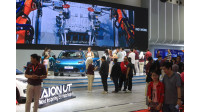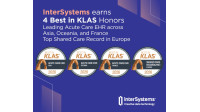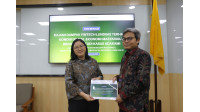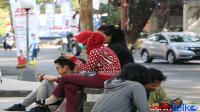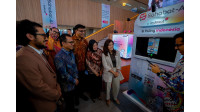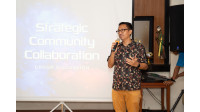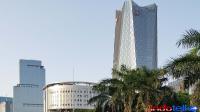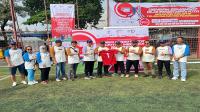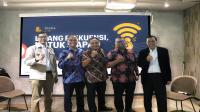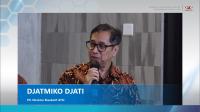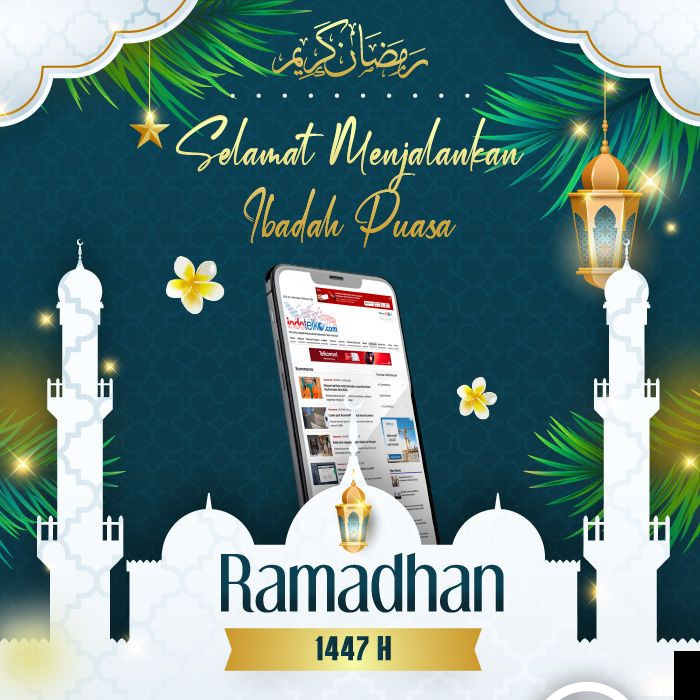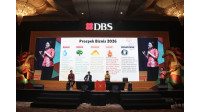Indonesia to Apply Active Network Sharing
09:03:28 | 20 Jan 2016
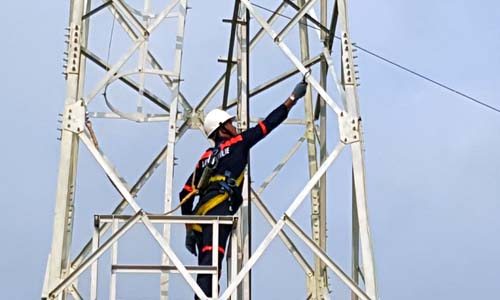
Ilustrasi (dok)
JAKARTA (Indotelko) - Indonesian Ministry of Communications and Information Technology wants to realize the Active Network Sharing idea in the telecommunications industry by proposing a revision of the Government Regulation (PP) No. 53/2000 on Telecommunications.
"Network sharing has its own pros and cons. But this is the need to make this industry sustain. We've prepared Minister Regulation, besides we've proposed a revision on the Government Regulation (PP) No. 53/2000 to make network sharing have an existing legal framework. Do not let the case like the IM2," said Indonesian Communications and Information Technology Minister Rudiantara, yesterday.
Active network sharing is a mechanism of telecommunications infrastructure sharing among active telecommunications operators in the country.
There are five models of network sharing namely the CME Sharing, multi-carrier radio access network (MORAN), multi-operator core network (MOCN), Roaming and mobile virtual network operator (MVNO).
"For me, the important thing is how to make the telecommunications industry more efficient, affordable and sustainable. Later the implementation will be Business to business (B2B) scheme. we are not forcing, but if applied then this is the legal umbrella," he said.
He estimated that network sharing will reduce the operator's cost of investment (capex) and operating expenses (OPEX). Network sharing implementation will also impact the revenues of the telecommunications network equipment providers (vendors) as well as subcontractors. (See also: The Impact of Network Sharing)
Saving
The ministry's Spectrum Allocation Sub-directorate Chief Deni Setiawan revealed that of a simulation of the four mobile operators, the adoption of MOCN network sharing could save Rp 5.2 trillion capex and opex saving Rp 1.4 trillion per year. Deni said that network sharing could use the MOCN or MORAN model. MOCN is where operators can share the BTS, but still uses the respective spectrum. While MORAN is not only sharing BTS operator, but also the spectrum is used together. "If you want to adopt the MOCN model, should be used not only to accelerate infrastructure development of mobile broadband (4G) in the big cities but also in rural areas and even the USO area," he advised. Deni also recommend that there are a variety of incentives to operators who implement network sharing. For example, provide incentives in the form of regulatory costs, ranging from licensing, building permits (IMB), excavation permits and others. The Government also needs to provide legal certainty regarding RAN sharing, particularly the MOCN models that are not subject to the payment of license fee (BHP) of dual frequency, and provide guidance to local governments for not using a double building permits (IMB) to operators who implement network sharing. Telkomsel's Technology and System VP Ivan Tjahja Permana said that network sharing should not rule out the existence of modern licensing obligation. "We strongly support all efficiency efforts. But, don’t let this network sharing makes operator would not fulfill its commitment to build a network," he said. According to him, Indonesia with a very wide area still requires the construction of network base stations. With more than 100 thousand base stations serving over 150 million subscribers, Telkomsel network ratio is 1,665 customers served by one BTS. This figure is still very high compared to Airtel-India (1520 subscribers per BTS), China Mobile (984 subscribers per BTS), NTT DoCoMo (724 subscribers per BTS), and SK Telecom of Korea (573 subscribers per BTS). "If we want to be in line with Korean SK Telecom, then Telkomsel still have to build 200 thousand base stations," said Ivan. Ivan said that there are 10 countries in the world that has the largest customer share. However, countries that implement active network sharing is only two, namely Russia and Brazil. In these two countries each have four telecom operators and each have a market share almost the same alias no dominant. "Active network sharing is not implemented in countries that have dominant operators," said Ivan.
While MASTEL Institute assesses Telkom Group is a successful example of the active network sharing business models (Active Network Sharing) application in the telecommunications industry.
"To know the benefits of network sharing, no need for overseas benchmark. Examples are nearby and in sight, namely Telkomsel. Since the beginning, Telkomsel is sharing its backbone and backhaul with Telkom, and the results are already visible. Telkomsel currently is the only healthy mobile operator," said MASTEL Institute Chairman Nonot Harsono.
In fact, Nonot said that Telkom's Backbone and Backhaul can actually be used as a network sharing platform for all mobile operators in order to form an integrated Indonesian broadband network. "The utilization of the network will increase rapidly, mobile operators can also be efficient and in the end, the public will enjoy high quality service," he said.(es)
Baca juga :
•
•
•
The ministry's Spectrum Allocation Sub-directorate Chief Deni Setiawan revealed that of a simulation of the four mobile operators, the adoption of MOCN network sharing could save Rp 5.2 trillion capex and opex saving Rp 1.4 trillion per year. Deni said that network sharing could use the MOCN or MORAN model. MOCN is where operators can share the BTS, but still uses the respective spectrum. While MORAN is not only sharing BTS operator, but also the spectrum is used together. "If you want to adopt the MOCN model, should be used not only to accelerate infrastructure development of mobile broadband (4G) in the big cities but also in rural areas and even the USO area," he advised. Deni also recommend that there are a variety of incentives to operators who implement network sharing. For example, provide incentives in the form of regulatory costs, ranging from licensing, building permits (IMB), excavation permits and others. The Government also needs to provide legal certainty regarding RAN sharing, particularly the MOCN models that are not subject to the payment of license fee (BHP) of dual frequency, and provide guidance to local governments for not using a double building permits (IMB) to operators who implement network sharing. Telkomsel's Technology and System VP Ivan Tjahja Permana said that network sharing should not rule out the existence of modern licensing obligation. "We strongly support all efficiency efforts. But, don’t let this network sharing makes operator would not fulfill its commitment to build a network," he said. According to him, Indonesia with a very wide area still requires the construction of network base stations. With more than 100 thousand base stations serving over 150 million subscribers, Telkomsel network ratio is 1,665 customers served by one BTS. This figure is still very high compared to Airtel-India (1520 subscribers per BTS), China Mobile (984 subscribers per BTS), NTT DoCoMo (724 subscribers per BTS), and SK Telecom of Korea (573 subscribers per BTS). "If we want to be in line with Korean SK Telecom, then Telkomsel still have to build 200 thousand base stations," said Ivan. Ivan said that there are 10 countries in the world that has the largest customer share. However, countries that implement active network sharing is only two, namely Russia and Brazil. In these two countries each have four telecom operators and each have a market share almost the same alias no dominant. "Active network sharing is not implemented in countries that have dominant operators," said Ivan.
Artikel Terkait
-
 English Ver. - 05:36:00 | 11 Feb 2026ITSEC Asia successfully developed and commercialised the IntelliBroń Platform
English Ver. - 05:36:00 | 11 Feb 2026ITSEC Asia successfully developed and commercialised the IntelliBroń Platform -
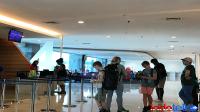 English Ver. - 04:06:00 | 25 Aug 2025The collaboration is designed to simplify complex payment processes for global travel businesses
English Ver. - 04:06:00 | 25 Aug 2025The collaboration is designed to simplify complex payment processes for global travel businesses -
 English Ver. - 04:07:00 | 11 Aug 2025Wireless Logic has completed the acquisition of Zipit Wireless
English Ver. - 04:07:00 | 11 Aug 2025Wireless Logic has completed the acquisition of Zipit Wireless
Rekomendasi
Berita Pilihan
More Stories
PR Newswire









